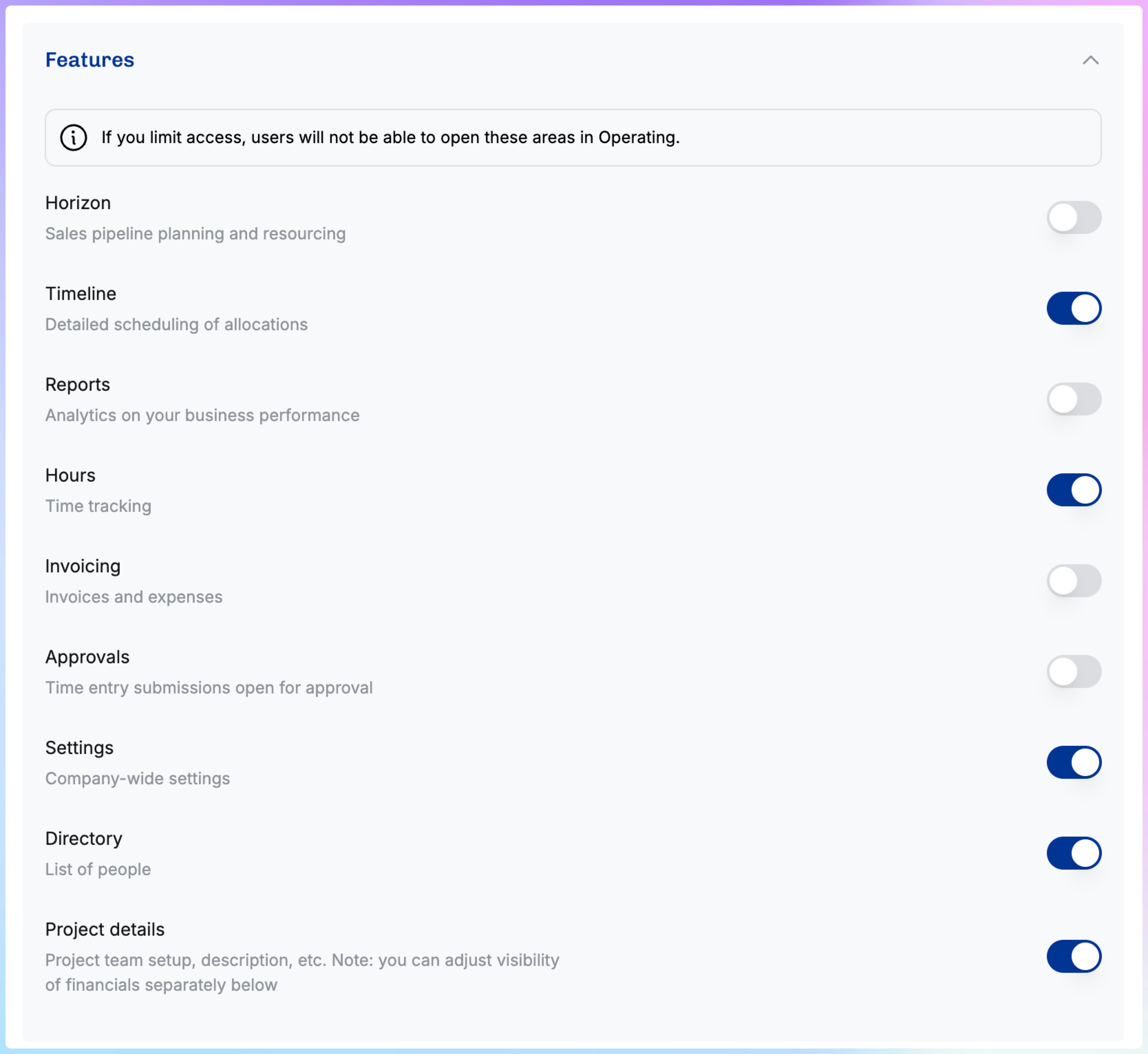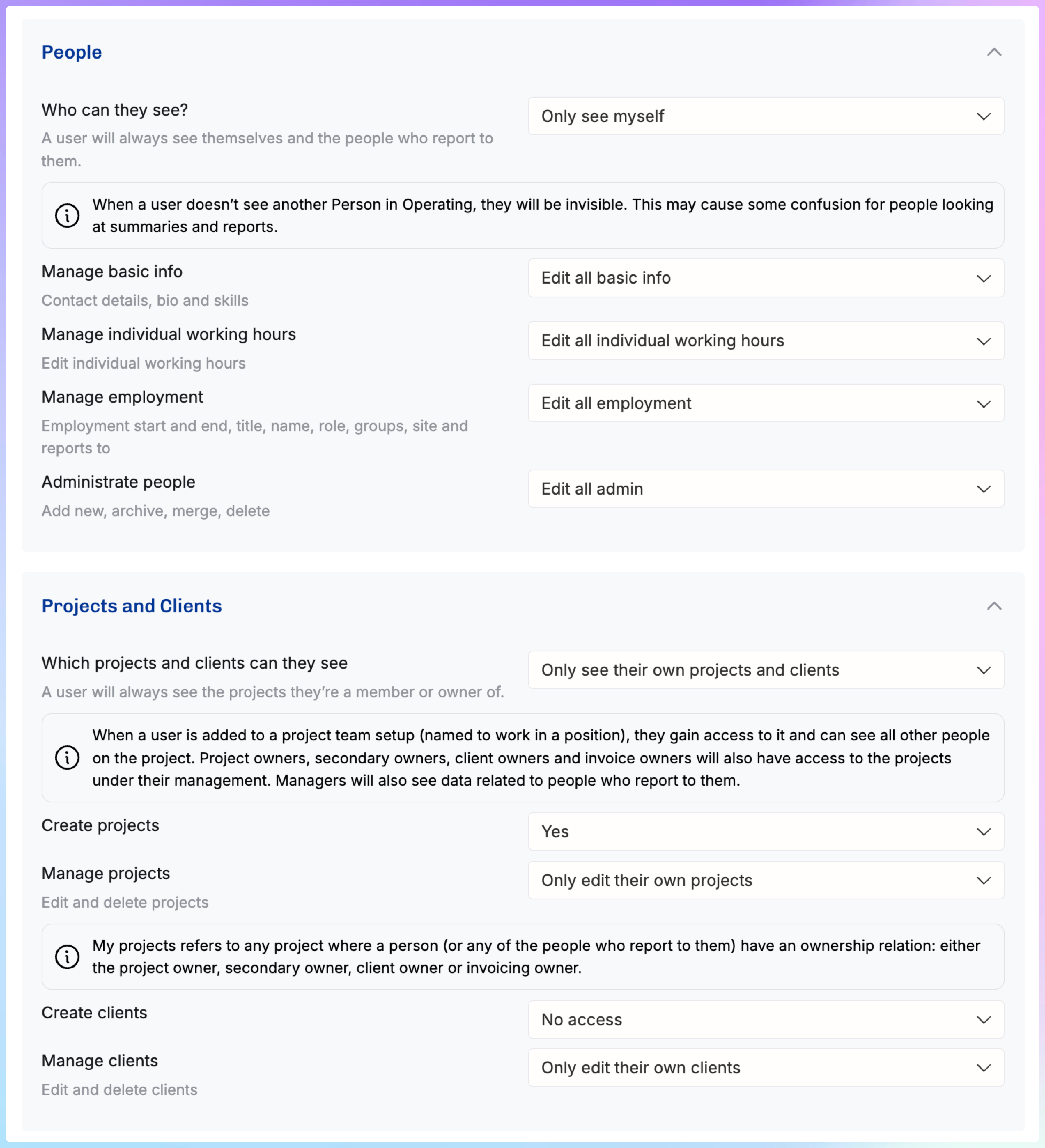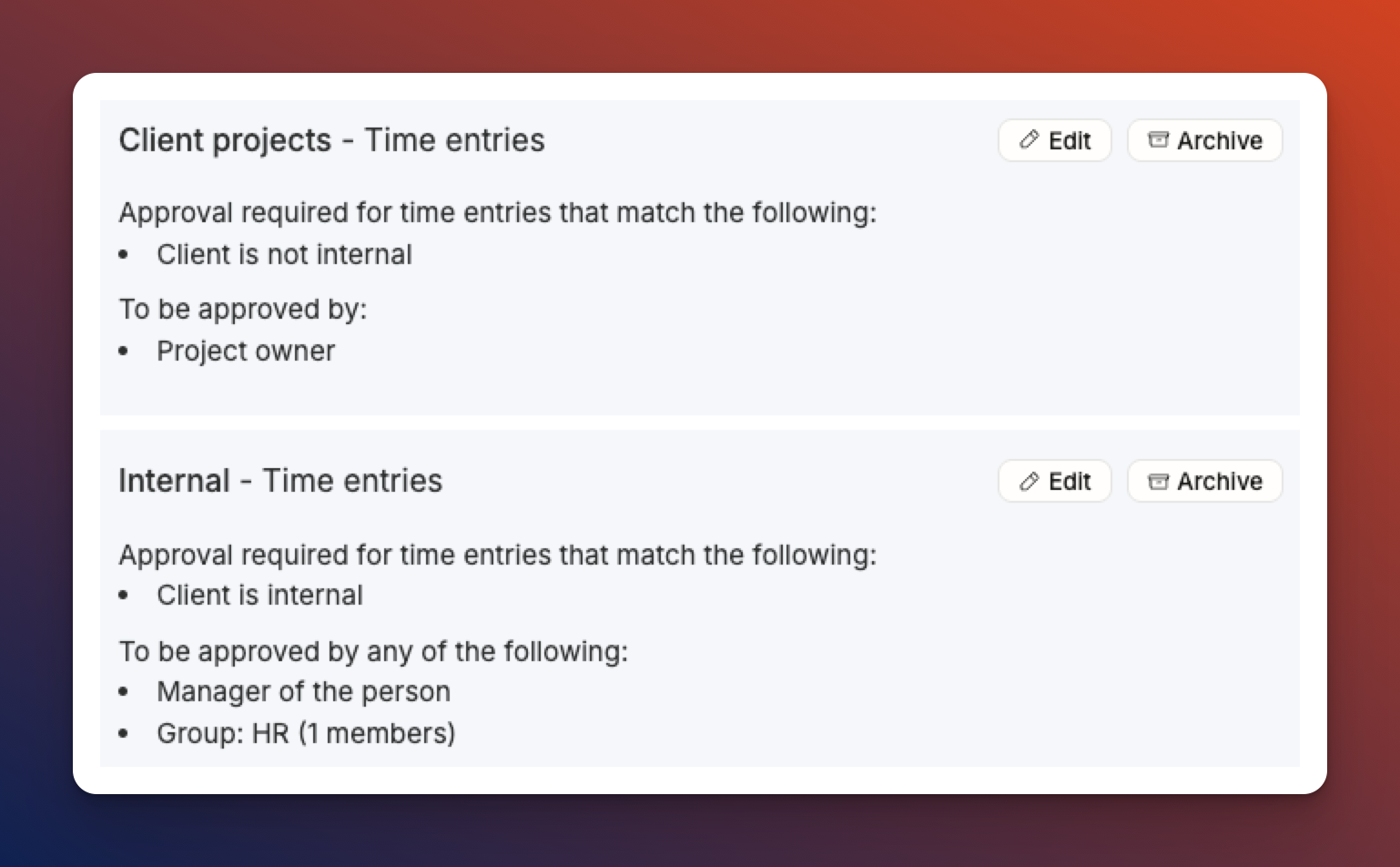Moving Beyond Time Tracking: Access and Visibility in PSA Software
Why Permissions Matter in Consulting Software
For consulting firms, the balance between transparency and access control is critical. Leadership often values openness, but client confidentiality, sensitive financials, and growing headcount mean not everything can be visible to everyone. We've witnessed this first-hand in growing consulting firms, before building Operating.
As firms scale across projects, regions, and business units, software permissions shift from being a nice-to-have to being a core requirement. Without them, information either spreads too widely or gets locked away, slowing down the business.
Operating now introduces more granular permissions to give firms control over who sees what — while still keeping the experience simple.
Toggle Which Areas Are Visible
Not every consultant needs access to every module. Admins can now toggle visibility of features such as Horizon, Timeline, Reports, Invoicing, Approvals, and more. This prevents information overload while keeping focus on the tools each role actually uses.

People Permissions
Visibility into people is now role-based:
- COOs and executives can see everyone.
- Managers automatically see their reports.
- Subcontractors and freelancers can be invited with very limited access, just enough to follow plans and track hours.
This keeps the firm open where it helps, but secure where it counts.
Project and Client Permissions
Project membership is tied to positions. Assign someone to a project position and they automatically gain the right level of access. Admins can control:
- Whether users can create or edit projects.
- Whether client visibility is limited to ownership.
- Whether external users only see the projects they belong to.
This ensures staffing drives access, not manual settings.

Positions, Allocations, and Time Entries
Managers get access to their team’s positions regardless of project membership. Consultants can edit their own allocations but not add themselves into projects without approval.
Time entry visibility is also configurable. Sensitive data can be hidden, and firms can decide who is allowed to edit others’ time entries, and whether changes are possible after approval.
Financials
Revenue, cost rates, and margins are rarely shared across an entire firm. Financial visibility can now be adjusted independently of project access. Executives and finance teams see the numbers they need, while consultants and subcontractors only see what is relevant to their work.
Enterprise Readiness Without Complexity
Permissions are the type of feature most firms only think about when they need them — and when they do, the absence of proper controls can become a deal-breaker. By making permissions both flexible and lightweight, Operating gives consulting firms the enterprise readiness they expect without turning configuration into a full-time job.
Conclusion
As consulting firms grow, the ability to control visibility of projects, clients, people, and financials becomes essential. Operating’s new granular permissions give leaders the control they need to balance transparency with security, while keeping day-to-day work simple for consultants.





